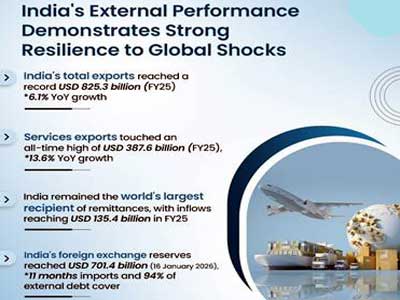Recent tensions between India and Pakistan led to two separate battles—one fought by soldiers on the ground, and the other in the digital world, where digital warriors unleashed a barrage of information and fake news.
As bullets flew on the ground, a storm of memes, fake images, and biased analysis erupted on social media. Platforms like X, formerly known as Twitter, WhatsApp, and others, spread these messages, leaving people confused and divided in their opinions.
Today’s era is one of connectivity, yet the human mind feels constantly besieged. The convenience of being connected has ironically disconnected humanity. The information reaching us through social media, news alerts, notifications, SMS, calls, and spam emails is proving more harmful than beneficial.
This deluge of information has clouded human judgment and reasoning. The constant stream of half-truths and false reports has created an environment where distinguishing fact from rumour has become difficult. The modern world has created its own Bhasmasur, a demon, who now threatens to consume it.
Statistics tell the same story—an average person sees thousands of ads daily, receives dozens of notifications, and spends time scrolling through hundreds of posts, many of which contradict each other.
Social media, originally designed to connect and inform, has now become a weapon for spreading lies and sensationalism. Renowned social commentator Prof Paras Nath Chaudhary says, "Falsehood spreads faster than truth. Research shows that online misinformation travels six times faster than factual information. This digital attack confuses people and erodes trust in institutions."
Fake news comes in two forms. First is ‘Misinformation’, i.e. Unintentionally spread false information. Second is ‘Disinformation’, i.e. deliberately spread to deceive. Both leave the average person unable to discern truth, trapped in confusion.
The result? Analysis paralysis. When choices become overwhelming—whether buying a product or forming an opinion—people struggle to decide. According to a leading psychologist, too many options leave people more anxious, stressed, and regretful.
The constant need to stay connected has fueled FOMO, i.e. Fear of Missing Out. A 2023 study found that the average person checks their phone 96 times a day. Notifications, meant to inform, have now become distractions. Incomplete news and shocking headlines create stress, while the habit of sharing unverified content worsens the situation.
In a digital war, rumours about troop movements and casualties go viral, first spreading fear and anger before the truth emerges. The impact is not just on individuals but on society as a whole. When the noise of information grows, there’s little room for reasoned discussion. Governments, once the guardians of information, now find themselves helpless against the wave of lies.
The recent social media storm showed how a narrative can spread without verification. Bots and those with hostile agendas amplify it, while authorities struggle to contain the chaos.
What can be done now? Individuals must control their digital diet by reducing notifications and verifying before sharing. Social media platforms must increase transparency. They should flag suspicious posts and stop fake news from spreading.
Governments should promote media literacy so citizens can think critically. This is a battle against a monster of our own making. If we don’t act now, the noise will drown out our ability to think.
In a world where information is both a weapon and a shield, using it wisely is the only way to prevent chaos.
















Related Items
Two pictures from one morning in one country...
Modern Odyssey of Indian Agriculture...
Breakthrough in improving wearable health monitoring systems